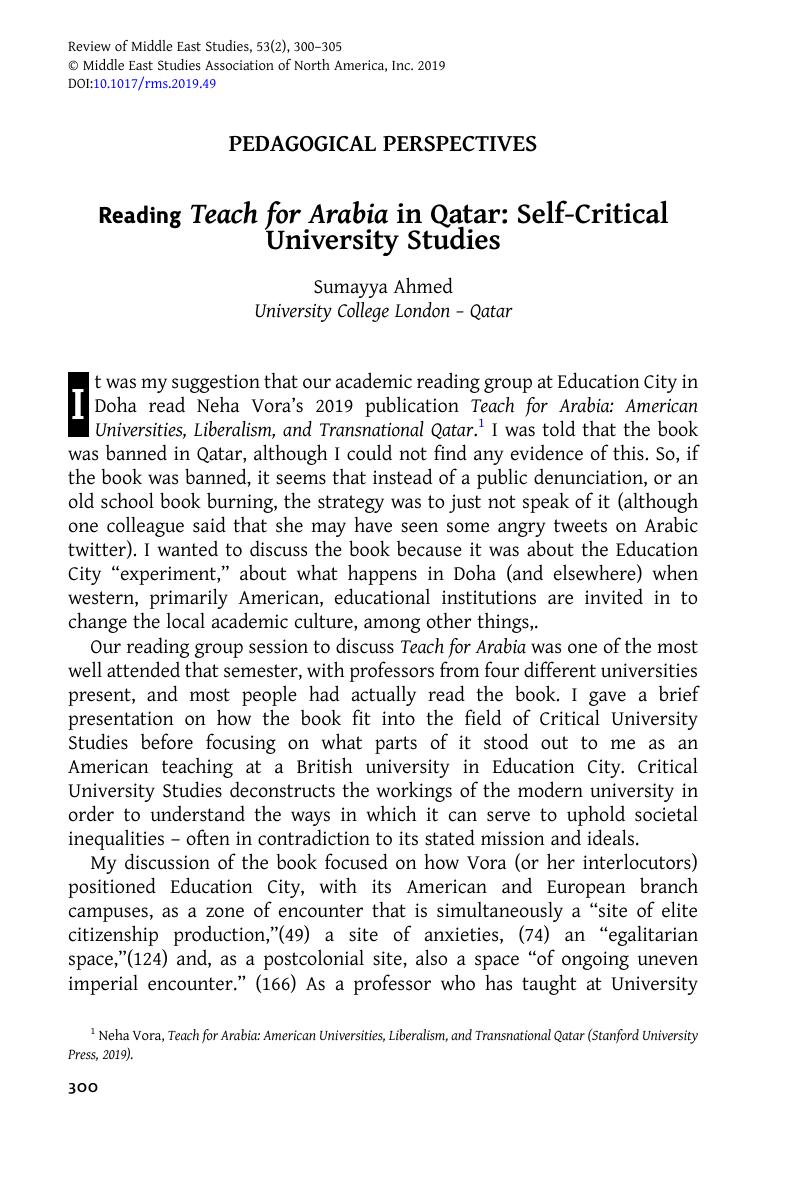Published online by Cambridge University Press: 11 December 2019

1 Vora, Neha, Teach for Arabia: American Universities, Liberalism, and Transnational Qatar (Stanford University Press, 2019)Google Scholar.
2 Tuck, Eve and Yang, K. Wayne, “Decolonization is Not a Metaphor,” Decolonization: Indigeneity, Education & Society 1.1 (2012): 1Google Scholar.
3 Vora, 28.
4 See Tuck and Yang, “Decolonization is Not a Metaphor.”
5 De Lissovoy, Noah, “Decolonial Pedagogy and the Ethics of the Global,” Discourse: Studies in the Culutral Politics of Education 31.3 (June 2010): 280Google Scholar.
6 Ibid., 286.
7 Tuck and Yang, “Decolonization is not a metaphor.”
8 Maryam Al-Subaiey, “Qatarization Policy – Implementation Challenges” Brookings Doha Center, 2011 https://www.brookings.edu/wp-content/uploads/2016/07/06_bdc_essay_winner.pdf
9 Chatman, Elfreda A., "Alienation Theory: Application of a Conceptual Framework to a Study of Information Among Janitors," RQ 29.3 (1990): 355-68Google Scholar.
10 The large influx of expatriate workers in Qatar,has made Qatar nationals just 10% of the population. At Education City, Qataris make up in a class can fluctuate via institution, from between 10 to50% of the student body. Other students are non-citizen long-term residents or international students.
11 De Lissovoy, “Decolonial Pedagogy,” 286.